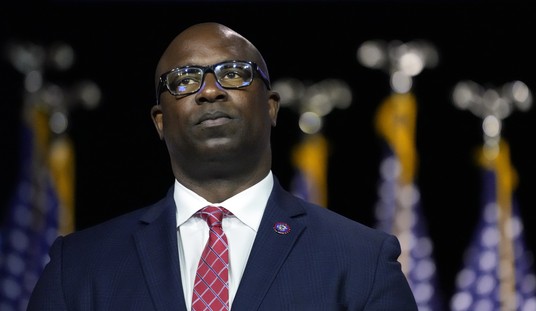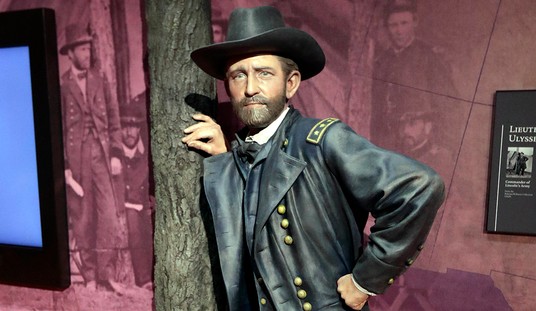Dr. Ezekiel J. Emanuel has just announced that he plans on dying at age 75 and implies that the rest of us should work toward achieving this too. His article is perhaps the single most outrageous and despicable screed written this entire year. One must also consider that this proposal is not being made by just any medical doctor. Dr. Emanuel, brother of Mayor Rahm Emanuel of Chicago, is a major advocate of universal health care and was a key advisor to the president on formulating the Affordable Care Act, or as we know it, Obamacare.
Indeed, a few years ago, Emanuel was accused by Betsy McCaughey and Congresswoman Michele Bachmann, among others, of favoring euthanasia and death panels for individuals. Dr. Emanuel argued that in fact he is a well-known opponent of euthanasia, and that, as the details in his Wikipedia entry note, his talk about “rationing” medical treatment concerned only the “allocation of very scarce medical interventions such as organs and vaccines,” not preventing the elderly who want medical treatment for illnesses from getting what they need. Emanuel said he was angry that what he wrote was taken out of context: “I find it a little dispiriting, after a whole career’s worth of work dedicated to improving care for people at the end of life, that now I’m ‘advocating euthanasia panels.’”
There is a serious discussion about how much treatment should be given at the very end of life, especially if a terminally ill patient would be worse off as a result. But in his Atlantic article, Dr. Emanuel makes us revisit the charges made against him some years ago and reevaluate whether his critics were not so far off in their claims.
Here is his argument neatly summed up at the start of his lengthy essay:
But here is a simple truth that many of us seem to resist: living too long is also a loss. It renders many of us, if not disabled, then faltering and declining, a state that may not be worse than death but is nonetheless deprived. It robs us of our creativity and ability to contribute to work, society, the world. It transforms how people experience us, relate to us, and, most important, remember us. We are no longer remembered as vibrant and engaged but as feeble, ineffectual, even pathetic.
And later:
I am talking about how long I want to live and the kind and amount of health care I will consent to after 75. Americans seem to be obsessed with exercising, doing mental puzzles, consuming various juice and protein concoctions, sticking to strict diets, and popping vitamins and supplements, all in a valiant effort to cheat death and prolong life as long as possible. This has become so pervasive that it now defines a cultural type: what I call the American immortal.
If young Zeke wants to stop living at 75, that’s fine with me. But the arguments he lays out are not really meant to be just about himself. He argues that essentially, one should stop living after he or she has led a complete life. According to him, by 75, people have passed their creative peaks. It is all downhill from there. They are being kept alive by the likes of flu and pneumonia shots, vaccines, antibiotics, and better medical care, which keeps them going instead of allowing nature to take its course. That is why, he says at one point, he does not believe people should get flu shots in their 60s: because each one taken by an elderly person is depriving a younger person who needs it to live a full life from having access to it. (He does not explain why both cannot get them.)
It is a myth, he says, that the 70s are the new 50s. To Zeke, longevity has been accompanied by “increases in disability.” He brags that he, in his mid-50s, just climbed Mount Kilimanjaro with his young nephews. He realizes that in twenty years he probably will not be able to accomplish this. Well, good for him. That certainly strikes me, however, as a shallow reason to hope to die.
My own mother, an average citizen who worked hard her entire life, lived to the ripe old age of 93. To her late 80s, she walked all through New York City, went to theaters, enjoyed concerts and films, and read books. She enjoyed the time she had with her grandchildren, who loved her and whom she adored. They benefited from the time they spent with her.
Clearly, by Dr. Emanuel’s logic, that is not enough of a reason to live. After all, she had what he calls “a progressive erosion of physical functioning.”
To Dr. Emanuel, for such a person, deciding to go on living is somewhat selfish.
I recently read an article about the cartoonist Jules Feiffer, who has just authored his first graphic novel. In the interview, Feiffer notes that he had to move from the city because of his physical limitations; he could not walk as he used to, and often was out of breath. So he treated himself to a home by the shore, where he now feels he is reaching his creative peak and carrying out new challenges, and hence is enjoying life fully. Indeed, I had dinner with him a year ago, and he was spirited and happy, waiting to see the publication of his book.
Why, then, does Dr. Emanuel argue that one should die before becoming very incapacitated? The answer lies in his personal story, as you’ll see on the next page. He tells us that his own father had a heart attack at age 77, which caused him to slow down. It has been painful for Dr. Emanuel to witness his father’s diminished capacities, even though he tells him he’s enjoying his life. The good doctor is so worried that this might happen to him that he wants to cheat old age and pack it in before it can strike.
As Dr. Emanuel tells us, “By 75, creativity, originality, and productivity are pretty much gone for the vast, vast majority of us.” So if he were to be asked, he would say Jules Feiffer is an outlier, but someone like my mother, who did not make any large public contribution to society — as Dr. Emanuel defines it — should pass on and make room for the younger and healthier.
This, of course, is the quintessential mind of modern liberalism: those not fit to rule and to contribute in the manner deemed essential by the liberal elites, of which Dr. Emanuel is a part, should pack it in. This is the slippery slope to the eugenics of Nazi ideology, whose practitioners readily killed the infirm, the handicapped, and those considered ill-suited to be part of the human race, like Jews, Gypsies, gay people and others. I know Dr. Emanuel makes it quite clear that he is a strong opponent of both assisted suicide and euthanasia. He does not seem to realize, however, that his own arguments give much meat to those who in fact do favor such a course.
After all, he bases his argument on the fact that even creative people like composers are past their time by age 40. Those like Jules Feiffer, or many friends of mine who in fact are doing quite well in their 60s and 70s, are to him anomalies. They cannot be brought up as examples to disprove his point. As he himself notes, a colleague of his is writing major papers and works alongside him — and he is in his 90s! All fine and good. But pity those who just enjoy life and are not scientists or intellectuals who judge their worth by their ability to function at the level they did at their peaks.
After 75, the average Joe, he tells us, has to adjust to physical and mental limitations. Their expectations shrink and their world becomes more restricted. This is a life not worth living, says Dr. Emanuel. Why should I live past 75, he seems to ask, when what I will write and will have to offer will not be as brilliant as what I had to offer in my 50s? I might be sharp, but God forbid I should grow “stooped and sluggish.” After all, who would want to be around Dr. Emanuel when he’s stooping? (I wouldn’t want to be around him now, but that’s a different matter.)
So here’s his recommendation: Do not have “any medical test or treatment, no matter how routine and painless. … Stop getting any regular preventive tests, screenings or interventions.” Accept only “palliative — not curative — treatments if you are suffering pain or other disability (sic).” If I’m still with us in twenty years, I would love to see the article Emanuel writes then. Whoops: he adds, “No antibiotics.” If you don’t take them, know that death from infection “is quick and relatively painless.” Tell that to the Americans who contracted Ebola, whose country is doing all it can to save them. True, I don’t think they were in their 70s. But they will be eventually, and why not let them die now, thereby sparing their growing disability later on? That is where his tortured logic leads.
Oh, he gives us the answer. His last sentence: “And I retain the right to change my mind and offer a vigorous and reasoned defense of living as long as possible. That, after all, would mean still being creative after 75.”
Bad cop-out, Zeke. What if the board deciding which treatments to give under Medicare says that in their eyes, your work is no longer creative? Sure, you think it is. But you changed your mind, and going by what you wrote in your 50s, they aren’t taking your word that you are still creative. After all, you have an interest in your own perpetuity. Society doesn’t. You’re depriving the young of scarce medical resources that should go to them.
So Zeke, sad to disappoint you. I’ll be 77 in November. I intend to work, write, see my children and grandchildren, and enjoy life to the fullest.
I hope I’m around for a while more, so that each time you come up with such nonsense in what was once an esteemed literary magazine, I’ll be around to take you on again. Count on it.








Join the conversation as a VIP Member